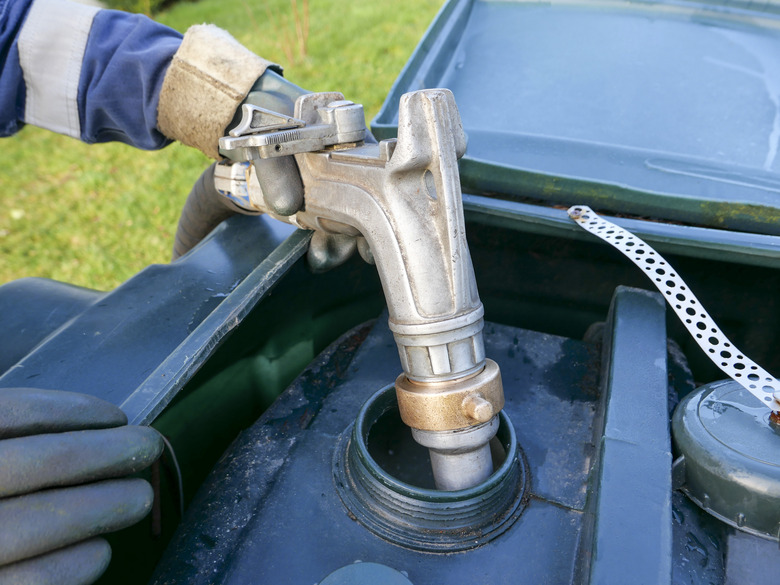How To Remove Heating Oil Smell
We may receive a commission on purchases made from links.
It's a good thing that heating oil smells. If it didn't, a spill or leak could go unnoticed, and the spilled oil could eventually ignite. In homes that are heated with heating oil, it's not uncommon to sometimes detect a faint odor of oil, and it's not always a sign that something is wrong.
However, because a noticeable heating oil smell could be an indication of a leak or other furnace issue, make sure you address the source of the problem and not just the odor itself. If you spilled heating oil, you don't need to worry about identifying the problem; cleaning up the oil is the pressing concern.
Diagnosing the Odor's Source
Diagnosing the Odor's Source
It's normal for a faint odor of oil to linger for as long as a few days after the heating oil tank has been refilled. It's also normal to smell heating oil after turning on the heat for the first time in the fall or after any prolonged period of disuse. If you smell heating oil after one of these occurrences, the odor should fade on its own soon. However, if you continue to smell oil for more than a few days after a tank refill, contact the delivery company so it can come check its work.
A heating oil smell sometimes indicates that the furnace filter is clogged. Try replacing the filter and waiting a day to see if the smell starts to dissipate.
If the heating oil smell doesn't have an obvious cause and isn't dissipating, call a professional technician. There could be a leak somewhere within your furnace system that needs to be addressed.
Cleaning a Heating Oil Spill
Cleaning a Heating Oil Spill
Unsurprisingly, spilled heating oil will create a strong and unpleasant odor. If you or a delivery person spilled a small amount of oil — less than a gallon — in your home, the best way to eliminate the oil smell is to soak up as much of the oil as possible. Clear all kids and pets out of the area and open windows and doors or use fans to ventilate an indoor spill while you work. Eliminate any ignition sources and don't use any electric devices or anything that can spark or burn until the spill is cleaned up.
Sprinkle an absorbent spill cleaner (or kitty litter or sawdust if you have them on hand) over the spill and let it sit until it's oily. Then, sweep up the material and repeat with another layer if necessary. Thick oil-absorbing pads, which are commonly used by mechanics, will also soak up some of the spill. Because it's important to act quickly when heating oil spills, keep at least some type of absorbent material on hand so you're prepared for a safe cleanup as soon as the spill happens. It may be necessary to rip up and throw away any floor coverings or other materials that have absorbed the oil. Put everything into heavy-duty trash bags and keep the trash outdoors to minimize smells indoors.
In the event of a more serious spill involving more than a gallon of oil, call your local fire department for guidance. It may be necessary to bring in a professional cleaning service.
Neutralizing Heating Oil Smell
Neutralizing Heating Oil Smell
Even if you're confident that your heating oil smell isn't caused by a serious problem and is going to dissipate on its own, the smell may irritate you in the meantime. Keep indoor spaces well ventilated and use natural odor neutralizers. The baking soda that absorbs odors in your fridge won't do much to combat a strong oil smell, but using activated charcoal might provide better results.
